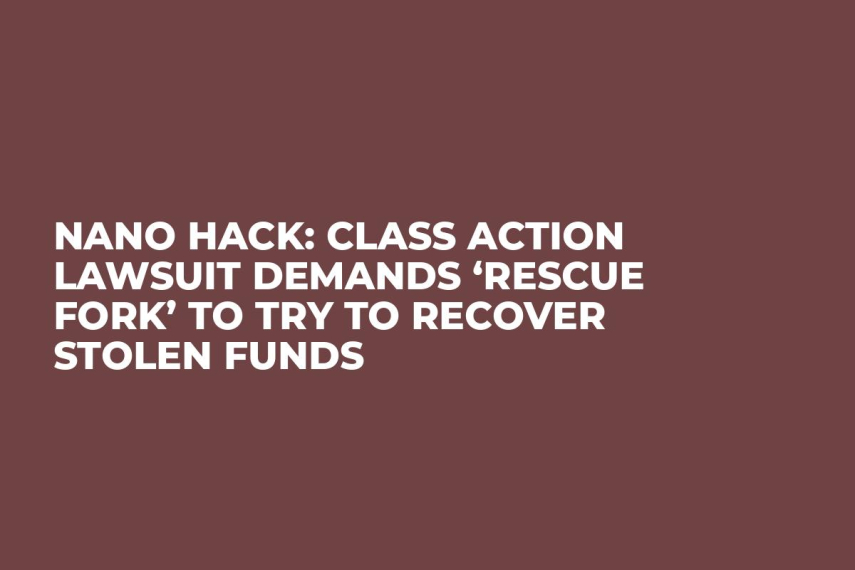
A recently filed lawsuit again Nano, the company, for its involvement in a hack that occurred on exchange BitGrail, has seen the lead plaintiff demand that the developers institute a ‘rescue fork’ intended to try and recover some of the stolen funds.
The hack saw $170 mln worth of XRB coins being stolen in February. While the hack happened on an Italian-based exchange, BitGrail, the class action lawsuit is aimed at Nano and their relationship with the exchange as Nano recommended investors place their assets with the exchange.
What happened
Because Nano advised its users to put faith in BitGrail, promoting its security and reliability, the users who were affected by the hack have come down hard on the two companies’ relationship.
The lawsuit was filed on April 6 against the following defendants: Nano (formerly Raiblocks), Colin Lemahieu (creator and lead developer), Mica Busch (developer), Zach Shapiro (iOS developer) and Troy Retzer (public relations).
The plaintiff, Alex Brola, is from Arizona. He originally invested $50,000, which had ballooned to more than $237,000 at the time of the hack.
When the hack occurred, the Nano developers and people in charge suddenly took no responsibility for the hack and tried to put distance between themselves and BitGrail.
“Defendants suddenly sought to put more distance between themselves and BitGrail than even the Atlantic Ocean could provide,” the complaint read.
A rescue fork?
Now, the plaintiff argues that the solution would be for the developers to enact what’s known as a “rescue fork,” involving the developers rewriting the XRB code “to return stolen assets,” as per the complaint. Forking XRB would create new tokens that would then be distributed to the investors who lost funds in the heist.
Legal representation
The latest move from Nano has seen them state in a blog post, that it will sponsor a legal fund to provide all victims of the hack of cryptocurrency exchange BitGrail with equal access to representation and pursue their legal interests associated with BitGrail’s insolvency.
 Tomiwabold Olajide
Tomiwabold Olajide Caroline Amosun
Caroline Amosun